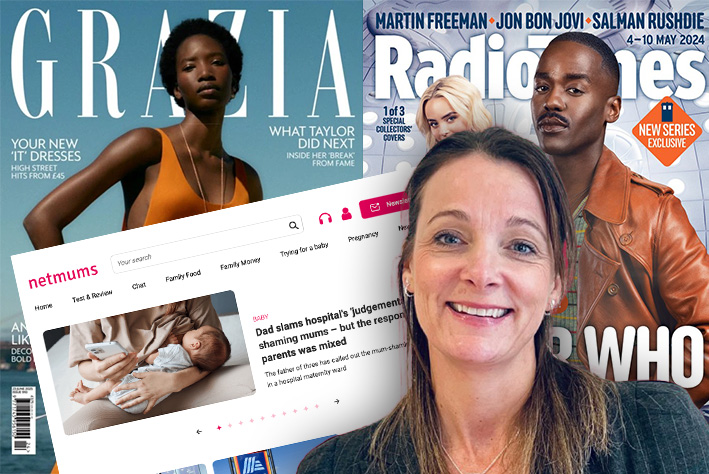Telco-backed Utiq partners UK publishers on addressable inventory

Utiq, the European telco-backed adtech group, has inked partnerships with its first UK publishers as it aims to provide privacy-centric addressable inventory for advertisers.
Bauer Media, Immediate Media and Netmums have been announced as launch partners, with more publishers in active talks, according to UK managing director Sara Vincent.
Billed as a post-cookie solution, Utiq claims to measure audiences across all environments, including on browsers previously considered non-targetable (such as Safari and Firefox) if they are accessed via mobile devices using cellular data.
Utiq is funded by telecoms providers including Deutsche Telekom, Orange, Telefónica and Vodafone, which have seats on the company’s board, although Utiq stands as an independent entity.
The group expanded its operations to the UK in January 2024 before officially launching its service last month with Virgin Media O2 and Vodafone as launch telco partners, which help generate and facilitate IDs.
Its telco-powered infrastructure enables publishers to gain access to scalable audience addressability while respecting user consent; users on their respective networks will be prompted to consent (or decline) tracking when visiting publisher webpages.
The consent box pops up every 90 days to ensure continued consent and in Europe it typically presents as a secondary pop-up.
However, with the growing popularity of publishers adopting consent-or-pay models in the UK following the Information Commissioner’s Office’s verdict that they are legally admissible, Utiq will be able to sit within existing consent-or-pay pop-ups as long as it is clearly visible what users are agreeing to.
“It’s presenting in this privacy-safe, consented way, which ticks so many boxes with what’s on top of mind in the market now,” Vincent told The Media Leader.
Opening up ‘our most valuable inventory’
While the solution was originally marketed as a post-cookie solution, Vincent insisted that Google’s U-turn on deprecating cookies has not had any impact on business.
“We’re talking about providing a consistent signal across all channels and third-party cookies existing in Chrome is a very small portion of that,” she pointed out.
James Florence, head of advertising technology at Immediate Media, told The Media Leader that third-party IDs are only currently on about 20% of the publisher’s traffic.
“There’s a huge amount of our most valuable inventory on Safari and iPhone that agencies currently aren’t addressing,” he said. “It’s a real missed opportunity.”
Thus the tie-up with Utiq will hopefully “bring back that value and create a lot of new targeting opportunities” for brands wanting to work with publishers like Immediate, Bauer and Netmums.
Florence praised Utiq’s “transparent approach” to consenting users, as well as the accuracy of its data from telco partners.
“The potential scale of Utiq, as the telco partnerships scale out, publisher [partnerships] scale out — it gives marketers a real alternative to the walled-garden, logged-in stuff and gives publishers a better chance of competing with them,” he added.
Next steps: Wi-Fi connection and CTV
The solution is timely as publishers’ referral traffic has been placed under pressure by generative-AI search, with many publishers actively planning for “Google Zero”.
“It’s more important than ever to be able to accurately and persistently understand what your users are doing,” argued Vincent.
Currently, Utiq has only enabled addressibility via mobile connections, but in the coming months it will also move into Wi-Fi connections. This requires moving from using personal identifiers to household identifiers, but it would allow Utiq to become effectively multichannel by making addressable any channel accessed by consenting users over Wi-Fi.
Not only would it further expand the possible addressable inventory for publishers, but it would also make possible for Utiq to move into CTV addressability.
In the meantime, Utiq will be working to create IDs for its current coverage. According to Vincent, just under 50% of the mobile audience in the UK is currently potentially addressable.
She added: “Buyers are looking for solutions that work already with scale — and we’re differentiated.”




